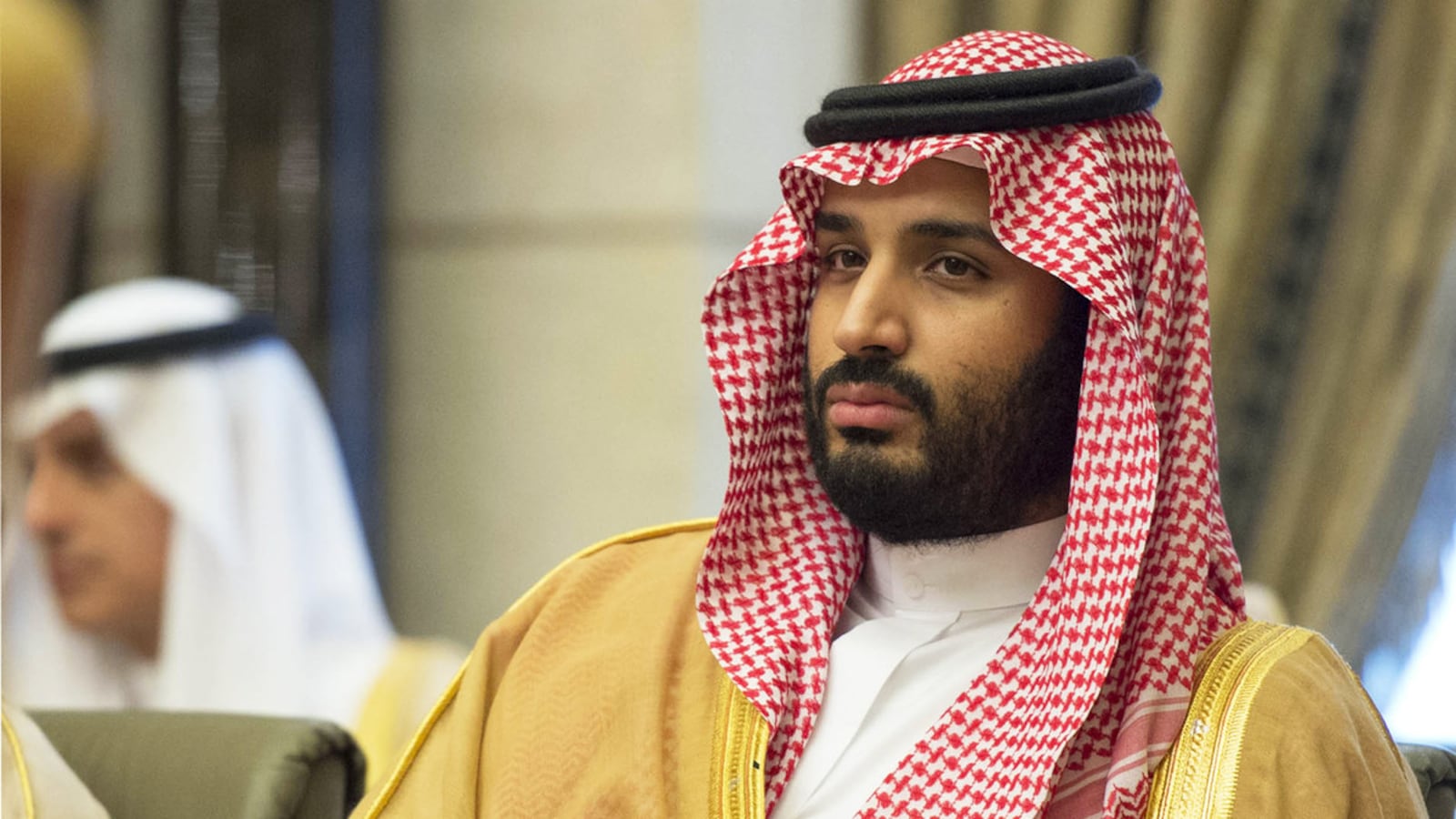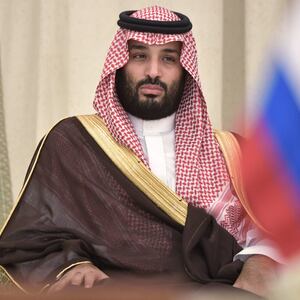The months since the election defeat of Donald Trump have not been the best days in the career of Saudi Arabia’s murderous crown prince, Mohammed Bin Salman.
MBS, as the prince is universally known, is reaping the whirlwind of his assassination of the journalist Jamal Khashoggi, as Western governments cool on their relationship with him. They are following the lead of the Biden administration, which, having described the regime as a “pariah” in the election campaign, publicly stated this week that the president will not deal directly with the crown prince.
White House press secretary Jen Psaki said this week that Biden would be engaging with King Salman, not his son. “We’ve made clear from the beginning that we’re going to recalibrate our relationship with Saudi Arabia,” she said. “Part of that is going back to engagement counterpart-to-counterpart.”
Bruce Riedel, a former CIA analyst and senior fellow at the Brookings Institution, told the Guardian that Biden should wish for MBS’ removal from the line of succession. “I don’t know what the administration is thinking but the best outcome would be [for Saudi Arabia] to remove him. He can retire to his chateau in France,” Riedel said.
While calls for the exit of MBS may be wishful thinking, it is clear that the Biden camp’s rhetoric marks a dramatic change from the adulation showered on Saudi Arabia’s ruthless heir apparent by Donald Trump. Trump chose Riyadh for his first overseas presidential visit in 2017, and continued throughout his presidency not just to turn a blind eye to MBS’ excesses but to cheer them.
A weakened standing among international leaders—MBS was said to exchange WhatsApp messages with Trump’s son-in-law and chief adviser Jared Kushner—could deprive MBS of an important domestic selling point.
But usurpation? Unlikely. Even his staunchest critics admit that MBS has successfully consolidated power in an unprecedented manner, taking personal control not just of the army and the government, but also directing Saudi Arabia’s huge sovereign wealth fund. But his power has come at the price of alienating literally thousands of formerly powerful and well-connected Saudi sheikhs and princelings, who still quietly loathe the prince for relieving them of huge chunks of their wealth in the 2017 “sheikhdown”.
One Saudi source, who knows several princes affected by the events of 2017, in which hundreds of prominent Saudis, including royals, billionaires, and senior government officials were detained and even tortured at the Riyadh Ritz-Carlton over corruption allegations and then forced to sign over vast amounts of money to the state, told The Daily Beast: “His closest confidants are young men of his own age [the prince is 35]. He knows that most of the old families hate him because of the sheikhdown. The old guard would be only too happy for the wheel to turn so they can reclaim their cushy deals.” (Walid Fitaihi, a Saudi-American doctor arrested and allegedly tortured during the Ritz-Carlton crackdown, was sentenced to six years in prison in December 2020.)
Indeed, the list of names of those who still haven’t been seen in public since the days of the sheikhdown is jaw-dropping. But perhaps none is more emblematic of MBS’ power than the continued absence from view of Mohammed bin Nayef, MBS’ uncle, who had very close links to the U.S. intelligence agencies, was credited with defeating the al Qaeda insurgency in the 2000s, and whom MBS ousted as crown prince.
Bin Nayef is being held under house arrest and denied access to family and medical care, his lawyers recently told London’s Financial Times. MBN’s closest aide and head of intelligence, Saad al-Jabri, fled to Canada in 2017 and has filed a lawsuit against the crown prince, alleging that he sent a hit team to kill him in the weeks following the Khashoggi murder, from which so much of MBS’ problems stem.
The brutal killing of Khashoggi is likely to be back in the news next week, when U.S. intelligence officials are expected to release a declassified report to Congress that will detail its view on the extent of MBS’s responsibility for the murder of Khashoggi.
The coronavirus pandemic hasn’t helped MBS either, decimating global demand for oil, Saudi Arabia’s cash cow. The vicissitudes of the market are one problem, but a bigger one is that unstable prices have choked off the appetite for long term investment in oil infrastructure which analysts predict will precipitate an oil shortage in 2022.
The shortage could send oil as high as $150 per barrel. Counter-intuitively, this could presage disaster for the oil-producing nations, some analysts suggest, because at those price points, green energy will become not only more politically acceptable but also significantly cheaper than oil.
Of course, MBS would argue that he is only too well aware of the existential threat that the end of oil poses to Saudi Arabia, hence his ambitious, “Vision 2030” master plan for weaning the country off oil revenues. But there is increasing concern that his plans, which include building a gigantic pleasure city, named NEOM, in a remote part of the Saudi desert, 1,000 miles from Riyadh on the Red Sea—where drinking alcohol will be permitted, and where men and women can mix—are little more than an exercise in hubris.
Another initiative, Program HQ, which has sought to get blue-chip multinational companies to relocate to the capital Riyadh by offering deals including a 50-year tax holiday, has failed to fill the city’s dozens of hi-spec, but very empty, office blocks.
Bradley Hope, an expert on Saudi affairs and co-author of the authoritative study on MBS, Blood and Oil, told The Daily Beast that the Biden administration’s recent declarations are “purely for public consumption in the U.S. Ultimately there is no way of dealing with ‘just the king.’ MBS is the head of the king’s royal court. He has taken over every job, every piece of paper that goes through there goes through him.”
He says that he expects next week’s CIA report into the Khashoggi killing to change little: “I suspect it will be similar to what we have already heard; that the CIA had a high degree of confidence that he either directed the killing or had knowledge of it. It’ll be a news cycle.”
The realpolitik of the Middle East is that if the US pushes MBS away, he will simply find other friends in China and Russia, who wouldn’t raise awkward questions about human rights.
Much as Joe Biden might like to wish it were otherwise, MBS probably isn’t going anywhere, and when he does it will likely only be up—to eventually become Saudi Arabia’s king.






